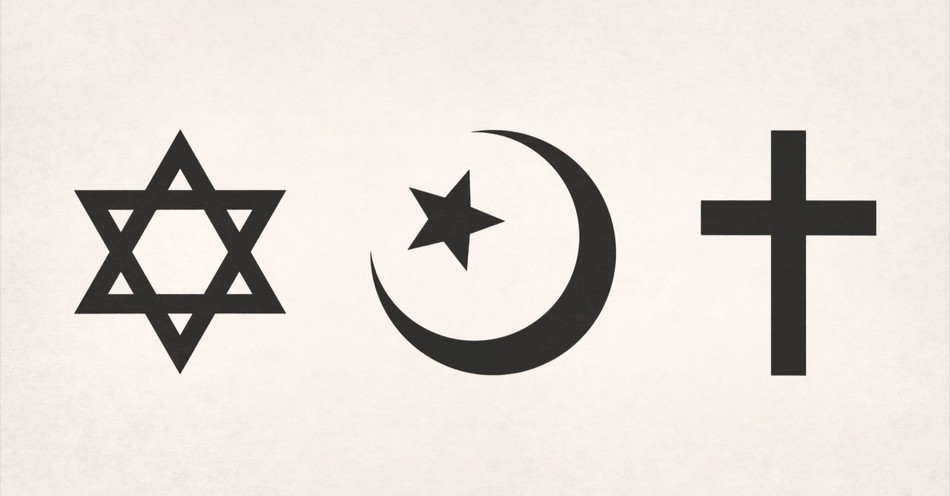The intriguing interplay between the Abrahamic religions—Judaism, Christianity, and Islam—and the concept of the End Times holds a pivotal place in the teachings of the Bahá’í Faith. With respect to the Bahá’í perspective, the transitional nature of these beliefs illuminates a broader understanding of divine revelation and the promise of a new age. Approaching this topic requires not only an analysis of the core tenets of these religions but also an exploration of how Bahá’í teachings reconceptualize these themes, ultimately leading to a paradigmatic shift in understanding.
To commence this examination, it is essential to delineate the fundamental principles of the Abrahamic religions. Each tradition harbors a rich heritage steeped in prophetic longing and eschatological expectations. In Judaism, the notion of a messiah is deeply ingrained; the faithful await a future leader who will usher in an era of peace and restoration. Christianity, on the other hand, accentuates the second coming of Christ, envisioning a time when He will return to fulfill God’s promises, culminating in the final judgment. Islam embraces the belief in the Mahdi, a messianic figure who will arise in the end times to restore justice and righteousness before the Day of Judgment.
Bahá’í teachings articulate a nuanced understanding of these prophetic fulfillments. They assert that each of these religions represents a distinct stage in humanity’s spiritual evolution, with the Bahá’í Faith representing the latest revelation from God. The concept of progressive revelation, integral to Bahá’í belief, suggests that divine guidance is dispensed in a series of ornate chapters tailored to the unique capacities and circumstances of humanity at different junctures in history. Thus, the Bahá’í view posits that the prophetic figures of the Abrahamic faiths—Moses, Jesus, Muhammad, and others—are all manifestations of a single, continuous line of divine guidance.
At the heart of Bahá’í eschatology is the assertion that the prophecies concerning the End Times are not merely warnings of catastrophe or tribulation, but rather, foretellers of a transformative period in human history. It is vital to recognize that this period is not characterized by an apocalyptic end, but by a new beginning—an evolutionary leap into a future that is laden with hope and potential integral to the vision laid out by Bahá’u’lláh, the founder of the Bahá’í Faith.
Central to this doctrine is the concept of unity. Bahá’í teachings emphasize that understanding the interconnectedness of the Abrahamic traditions fosters not only mutual respect but also the recognition that these religions collectively contribute to the tapestry of divine guidance. As humanity faces contemporary global challenges—whether social, environmental, or political—the Bahá’í Faith advocates for a collaborative approach that transcends divisive sectarian boundaries. This synergy is believed to be a requisite precursor to the realization of a peaceful global society.
Moreover, the teachings of Bahá’u’lláh elucidate the idea that the manifestations of God transmit messages adapted to the needs of their respective societies. For instance, the moral imperatives offered by these figures may shift as humanity evolves; Bahá’í literature underscores the importance of adhering to the essence of religious teachings while recognizing their contextual transformations. In essence, the promises contained within the teachings of the past coexist, harmoniously, with the revelations of the present.
Investigating the role of divine intervention in the End Times, Bahá’í perspectives reveal a deeply optimistic outlook. They assert that the turmoil often associated with eschatological narratives is not a sign of divine abandonment but rather an indication of humanity’s growing pains as it transitions into a new epoch characterized by unity and cooperation. In this light, lens, events traditionally viewed as apocalyptic may instead be seen as critical turning points that prompt humanity to reevaluate its values and behaviors.
To further elucidate this idea, one might consider the contemporary anxieties surrounding climate change and societal polarization. Bahá’ís believe that these crises serve as catalysts for a collective awakening, urging humanity to embrace a higher moral standard and adopt more sustainable practices. Consequently, the Bahá’í teachings encourage individuals to see themselves as agents of change, participating in the unfolding narrative of the End Times with hope and resolution.
In this emergent worldview, the individual and collective roles of adherents become paramount. The social teachings of the Bahá’í Faith underscore the importance of community building, encouraging followers to cultivate virtues such as service, empathy, and justice. The ideal Bahá’í community reflects a microcosm of the oneness of humanity—embodying the principles of equality and the elimination of prejudice, yet grounded in a shared commitment to spiritual and social development.
Ultimately, the Bahá’í view of the Abrahamic religions and the End Times compels a reevaluation of established paradigms. It beckons a shift in perspective—encouraging curiosity about how one’s own faith aligns with a broader, more comprehensive narrative. By understanding these traditions as interconnected threads in the grand tapestry of divine revelation, Bahá’ís are inspired to engage with their faith more deeply, contributing to the creation of an inclusive global society poised to embrace the promises of the future.
In conclusion, the Bahá’í teachings offer profound insights into the complexities of the Abrahamic religions and the paradigm of the End Times. By advocating for unity, understanding, and proactive involvement in societal challenges, the Bahá’í Faith presents a compelling vision of hope and transformation, wherein the teachings of the past serve as a foundation for an extraordinary future. Thus, engaging with these concepts not only piques curiosity but also instills a sense of purpose that transcends mere individual belief and enters the realm of collective action and global stewardship.
